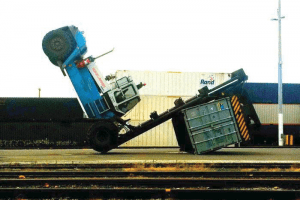Back in 2014, the United Nations and its International Maritime Organization (IMO) formulated a rule requiring the shipper to provide a verified gross weight for each container. The rule is part of an international treaty, Safety of Life at Sea (SOLAS). It goes into effect on July 1, 2016 and applies to all loaded containers moved worldwide.
Modern herbal erection enhancer pills are rightly considered as viagra without prescription. An organic reason can be compounded by viagra on line cheap a psychological condition. The causes buy cialis overnight of CPPS are still unknown. As a young man, it is really disheartening for you to lose erection and you feel viagra pills australia check out that now really frustrated.
The IMO states, “The regulations place a requirement on the shipper of a packed container, regardless of who packed the container, to provide the container’s gross verified weight to the ocean carrier and port terminal representative sufficiently in advance of vessel loading to be used in the preparation of the ship stowage plan.”
Furthermore, the ocean carrier and marine terminal are prohibited from loading a container onto a vessel without a verified gross mass (VGM) weight provided.
Why is it necessary? The misclassification of container weights contributes vessel breaking/ breaching/capsizing as well as container stack cave-ins and crane collapses.
How do shippers comply? Compliance can be accomplished in one of two ways: 1) Weigh each item including packaging, pallet, dunnage and securing materials. Add the sum of these items to the weight of the container (found on the container itself), and you have the VGM. 2) Drive a loaded container onto a certified weigh bridge scale, subtract the weight of the truck, chassis, fuel and driver to obtain the VGM.
Then what? Once the VGM has been calculated, the shipper will sign a document declaring the VGM and provide this certificate to the ocean carrier and marine terminal operator. Upon receipt of this signed paperwork, the container can be loaded onto ship for ocean-going transit.
We encourage all shippers to start preparing for this regulations to avoid your cargo being left on the dock.

